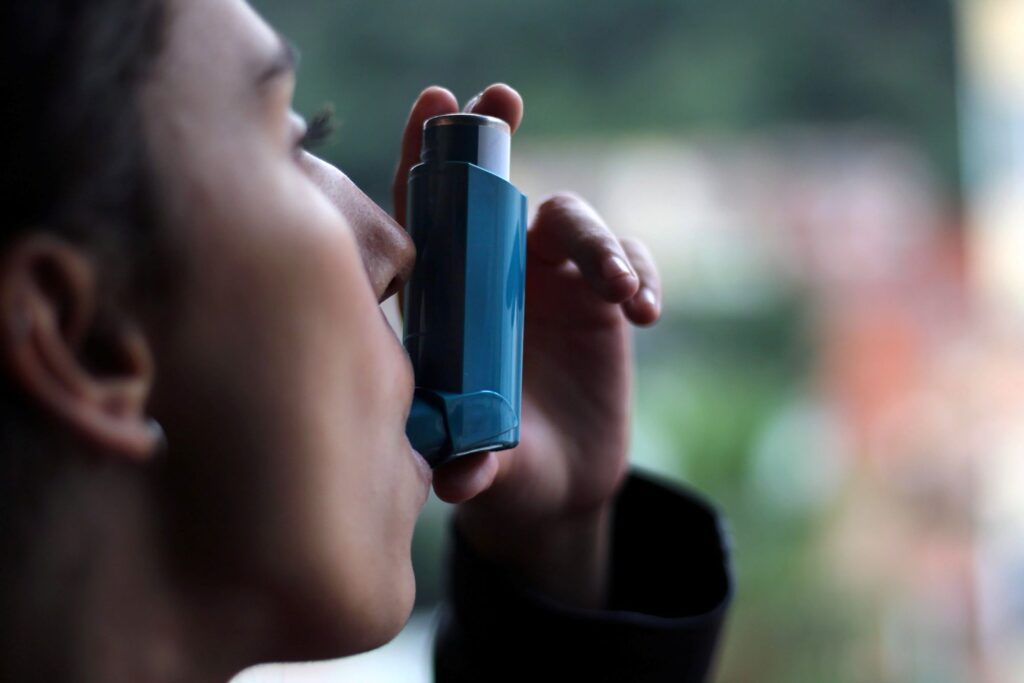Bothered Breathing: How Asthma Affects Your Dental Health
January 12, 2025

Do you frequently experience shortness of breath, chest tightness, or coughing when exposed to allergens, cold weather, or chemical fumes? If so, you may be among the estimated 235 million people worldwide suffering from asthma. When this chronic respiratory condition is triggered, it causes inflamed and narrow airways that restrict your inhalations and exhalations.
Unfortunately, asthma attacks also pose risks to your dental health. Sources estimate that people with this disorder are 18.8% more likely to develop periodontal problems than those who breathe normally. Continue reading to learn more about safeguarding your smile to prevent potential concerns!
How is Asthma Treated?
This breathing disorder cannot be cured, but there are ways to manage symptoms to prevent it from interfering with your daily life. For instance, prescription medications and inhalers contain drugs that can relax the muscles around your airways and reduce inflammation to avoid asthma attacks or help you overcome them more easily.
How Does Asthma Affect My Dental Health?
Did you know that saliva is your mouth’s first defense against oral issues? It contains a nearly neutral pH balance to counteract acid damage to your enamel to keep it strong. Plus, it rinses away leftover food, germs, and other unwanted particles that can contribute to tooth decay, gum disease, and other injuries.
Many patients with asthma tend to breathe more through their mouths than their noses to get sufficient oxygen. This can cause dry mouth, which encourages unhealthy bacteria to thrive. Furthermore, some inhalers reduce your saliva production by repressing your salivary glands, increasing your vulnerability to dental concerns like gum disease or thrush.
Although these infections might start small, if they go unaddressed, they can progress and then enter your bloodstream to contribute to other medical concerns, like heart problems or diabetes.
How Can I Prevent Oral Issues from Asthma?
Thankfully, there are several proactive ways you can protect your grin from your asthma and the medications used to treat it. You can preserve your smile by:
- Drinking more water. H20 has a neutral pH balance to counteract any acid damage from inhaler medications. It also keeps your mouth moist and rinses away unwanted particles that contribute to oral problems. Plus, it boosts your immune system to better fight gum disease and other infections.
- Rinsing after inhaling. Rinsing your mouth or quickly brushing your teeth after using your inhaler helps offset the impact on saliva flow and clears residue off your enamel.
- Changing medications. Some inhalers are sweetened with sugar to make them more palatable, increasing the risk of cavities. Ask your doctor about safer options to switch to.
- Implementing a routine. You should brush and floss twice daily to consistently remove plaque and bacteria from your teeth and gums.
Finally, you should schedule a routine checkup and cleaning with your dentist every six months so they can monitor your condition to catch and address any areas of concern, like inflamed connective tissues, before they progress!
Meet the Author
Dr. David Rosenfeld takes pride in helping people of all ages improve their quality of life by enhancing their dental health. He graduated from the Columbia University School of Dental and Oral Surgery in New York City and has been awarded the status of Fellowship in the International Congress of Oral Implantology. Today, he offers a comprehensive menu of world-class services under one roof to meet all of you and your family’s needs, including basic preventative care. If you’re worried about periodontal problems, you can request an appointment on the website or call (908) 668-7838.
No Comments
No comments yet.
RSS feed for comments on this post.
Sorry, the comment form is closed at this time.

